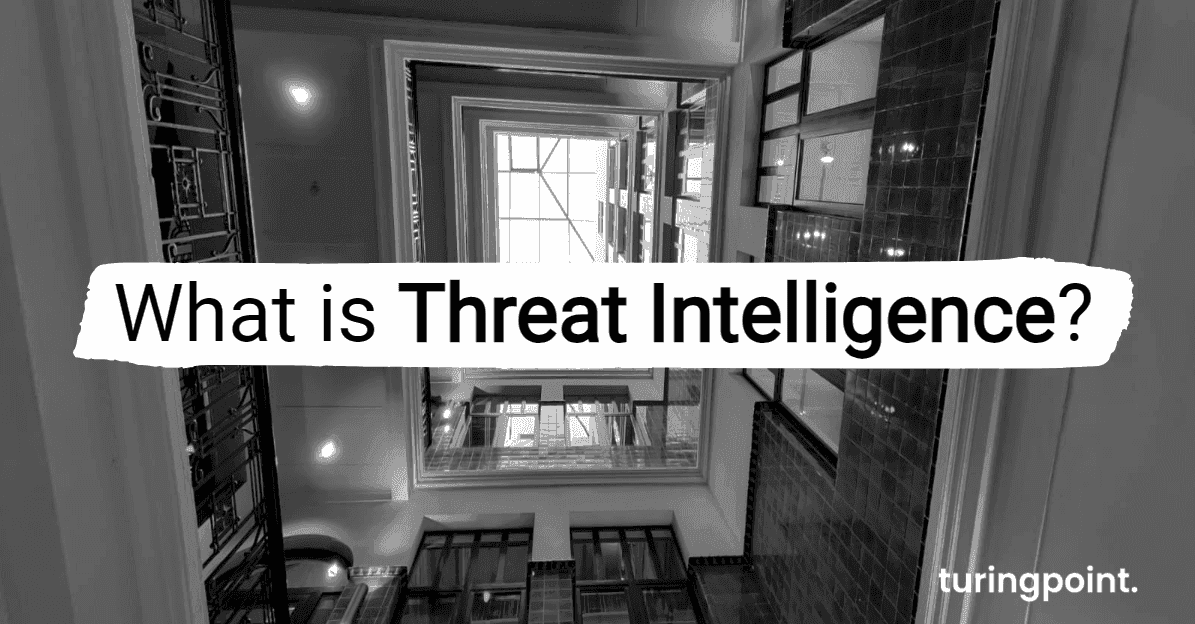What is Threat Intelligence?
Threat intelligence refers to the collection, evaluation and analysis of information about current and potential threats.

Table of content
What is Threat Intelligence?
Threat intelligence refers to the collection, evaluation and analysis of information about current and potential threats to an organization or system. This involves collecting data from various sources such as public security reports, forensic analyses, social media posts or dark web information in order to obtain a comprehensive picture of threats.
Annex A.5.7 of ISO 27001:2022 also deals with the topic of "threat intelligence" and describes the requirements for an organization to collect, analyse and use information about threats to information security.
The aim of threat intelligence is to become aware of potential attacks or threats at an early stage and to take appropriate protective measures. By continuously monitoring and analyzing threats, vulnerabilities and attack patterns can be identified in order to take preventive measures and respond quickly to current threats.
Types of Threat Intelligence
Strategic Threat Intelligence (STI)
STI provides an overview of the current threat landscape to help decision-makers in organizations make informed decisions about their cyber security risk management. The following points can be considered here:
Trends and patterns:* Identification of new threat types, evolving trends and patterns in cybercrime, and changes in threat actor behavior.
Geopolitical threats: Assessing the risk of cyberattacks by foreign governments or state-sponsored groups.
Industry-specific threats: Understanding the unique threats faced by organizations in specific industries, such as financial services, healthcare or energy.
Corporate assets: Identifying the organization's key assets that could be attractive to attackers and assessing the risk to those assets.
Business impact: Assess the potential damage that a cyberattack could cause to the organization, both financially and in terms of reputation.
Tactical Threat Intelligence (TTI)
TTI is detailed and timely information about specific threats and threat actors that companies can use to strengthen their cybersecurity defenses and stop ongoing attacks. The following points can be considered here:
Indicators of Compromise : Specific information that may indicate the presence of an attacker or threat in a system, such as IP addresses, URLs, file hashes or malware signatures.
Tactics, techniques and procedures: The specific methods that threat actors use to carry out attacks, e.g. spear phishing, social engineering or exploitation of vulnerabilities.
Malware analysis: Detailed information about how malware works, including its spread, damage and detection avoidance techniques.
Campaign tracking: Monitoring ongoing cyberattack campaigns and identifying the threat actors involved, their targets and their methods.
Operational Threat Intelligence (OTI)
OTI focuses on actionable analysis of current and immediate threats that directly affect your organization. In other words, it is about concrete action against immediate threats. The following points can be considered here:
Short-term focus: OTI addresses ongoing attack attempts or threats that could attack your organization in the near future.
Actionable insights: OTI provides not only threat intelligence, but also practical advice that your security team can use to stop attacks and protect your organization.
Goals of Threat Intelligence
Improved risk management: Enables organizations to better understand the potential impact of cyber threats and develop effective risk management strategies.
Lower costs: Proactive cyber-attack prevention measures can prevent costly data breaches and business disruptions.
More effective decision making: Executives can make informed decisions about resource allocation and security control implementation.
Improved cybersecurity culture: Threat awareness across the organization can lead to more vigilant and secure employee behavior.
Faster response time: Threat intelligence enables security teams to respond faster to threats and stop attacks before they can cause damage.
Reduced impact of damage: Faster threat detection and response can help reduce the impact of cyberattacks.
Contact
Curious? Convinced? Interested?
Schedule a no-obligation initial consultation with one of our sales representatives. Use the following link to select an appointment:
